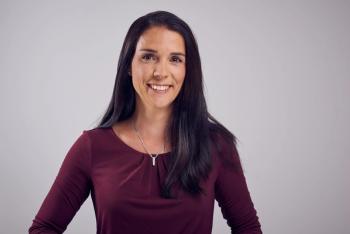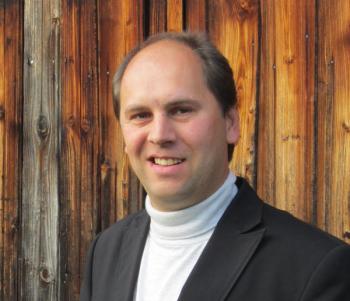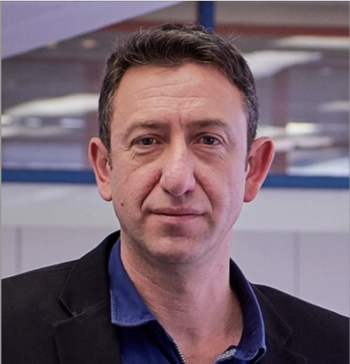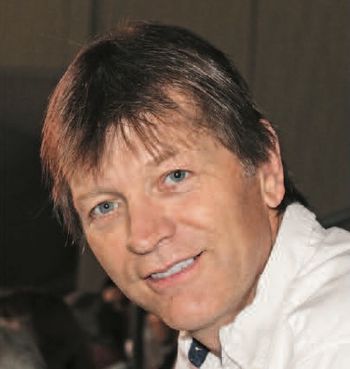
Ron Majors, Part II: LCGC’s 2018 Lifetime Achievement in Chromatography Award Winner Discusses His World Travels and His Advice to Young Scientists
Ron Majors, the 2018 LCGC Lifetime Achievement in Chromatography award winner, is famous throughout the world for his work teaching short courses, presenting at conferences, and his columns in LCGC. Here, Majors discusses the challenges he faced travelling far and wide, some favorite memories of those trips, new found hobbies since his retirement, and advice for the next generation.
Ron Majors, the 2018 LCGC Lifetime Achievement in Chromatography award winner, is famous throughout the world for his work teaching short courses, presenting at conferences, and his columns in LCGC. Here, Majors discusses the challenges he faced travelling far and wide, some favorite memories of those trips, new found hobbies since his retirement, and advice for the next generation.
You traveled extensively during your career. Do you have any interesting stories from those trips, whether personal and professional?
One of the biggest advantages of working in an instrument company, in an R&D, applications and marketing role, was that I was encouraged to travel to visit customers, attend conferences, give courses, make presentations, and generally get the word out on my company’s products, applications, and programs. Being interested in traveling, it fit me to a tee. During my 45 years working in an industrial environment, I was able to travel to 84 countries and gave countless lectures, customer visits, symposia, training courses, and other outward-focused activities. Needless to say, I have had many interesting (and not so interesting) travel experiences. For example, on September 11, 2001, I was attending the 25th HPLC meeting in Kyoto, Japan (along with many other American chromatographers). Being 12 hours out of synch with the East Coast, I was returning from dinner and decided to put CNN on the television, the only English-speaking program at the time. In “real time” (around 9 p.m. in Kyoto), I sat glued to the TV with the unthinkable happenings being reported in front of my eyes. I stayed up until 3 a.m. watching the drama unfold. Many of the other chromatographers went to bed not realizing what was going on. The next morning many were still totally unaware of the catastrophe. The organizers thought about canceling the meeting, but since all flights to the United States were grounded nobody was going anywhere for a while. So, HPLC 2001 Kyoto proceeded with many still in shock. Depending on the airline, some had to stay an extra week before returning. Fortunately, I traveled on American Airlines on one of the first flights allowed back into the US on the following Saturday; United Airlines travelers had to wait an additional four days.
Another somewhat harrowing experience was the 2008 Mumbai attacks in India. Now referred to as 26/11 in India, you may recall that 10 members of a Pakistani Islamic terrorist group carried out a series of 12 coordinated attacks lasting four days across Mumbai. I was in India with another Agilent employee from Germany. Fortunately, our Mumbai hotel was about 4 miles from the attack area. That was one time I was happy that my company didn’t put us up in five-star hotels that were attacked near the South Mumbai port area. Nevertheless, roadblocks were put up, precluding us from getting to the airport to leave, even though the airport was only a quarter mile away. After a day, we were able to finally get to the airport for the next part of our journey.
On a brighter note, many of my trips gave me the possibility to visit some interesting places. One of note was a seminar that was run in the Beijing Library lecture hall in China. More than 450 people attended; it was quite a show, especially at lunchtime when free food caused a mad dash to the gigantic soup tureen.
One thinks about traffic being bad in the US; once in Bangkok, it took us 8 hours to go across town from a customer’s site to our hotel with no place to stop for a bathroom break. Another one of my most memorable events was a visit to the UK to receive the 2007 Martin Medal presented by the Chromatographic Society. Normally reserved for top academic scientists, and rarely given to industrial or manufacturer chemists, I was honored when they gave me this prestigious medal for my years of training chromatographers through my writings and for my early work in HPLC columns. The actual medal though was presented at the HPLC 2008 meeting in Washington, but it was still a treat to be honored at the Chromatographic Society event. I have received other awards, but this one being an international award was special. The LCGC Lifetime Achievement Award for 2018 will be in this same illustrious category, but as of this writing I have not yet received it!
Another interesting thing happened when Professor Harold McNair, professor emeritus of Virginia Polytechnic Institute (now called Virginia Tech), and I were on a speaking tour in Sweden. We had lectured at various places all day long and were told that the last meeting that took place after closing time at the Swedish Tobacco Company in Stockholm would be with a small number of managers sitting at a round table and would be low key. Thinking that the day was over, we left our slides in the car, which was parked quite far away. We arrived around 5:30 p.m., slightly late, only to face a full auditorium of probably 75 eager scientists to hear recent developments lectures on GC (McNair) and LC (Majors). Without slides, Harold was first and gave a dynamic lecture on GC, drawing chromatograms on a blackboard and using his hands a lot. Taking guidance from Harold’s performance, I followed with a similar hand-waving and peak drawing lecture. We both received a resounding applause after expecting a total disaster without proper slides. It proves that you don’t need to have fancy slides and “glitter” to get your point across. If thrown into a supposedly unworkable situation, take a deep breath and don’t panic!
Finally, when presenting lectures, especially in other parts of the world, often the hosts want to give the speaker a gift of appreciation for traveling such a long distance to grace their institution. Usually the gift is something local that they feel would be somewhat novel and memorable. However, rarely do they think about how the speaker will be able to transport the gift back home, which may involve traveling thousands of miles away, with several flights and transfers. Japanese dolls, ceramic tea sets, any paper-art products, anything bulky or boxed presented big problems for easy transport, but couldn’t be left behind. A word of advice to would-be hosts: give a gift that is smaller than a breadbox!
During your customer interactions around the world, did you notice any common themes that people needed help with? Were there any funny situations that arose?
Believe it or not, chromatographers are the same all over the world. They have a job to do and anything that they can learn to help them do their jobs better, they appreciative of. I have found that many are looking for practical advice, not too much esoteric theory or suggestions that are well beyond their means. That is why I often noticed LCGC magazine sitting right next to the LC instrument for easy reading of practical information. The biggest difference is what tools their laboratory can afford to purchase for instruments, accessories, and supplies. In some countries, funds are in short supply and tradeoffs must be made. However, what has amazed me is how innovative some chromatographers can be when they lack some of the tools that many of us would deem necessary. I had the opportunity to visit what are called “historically black universities” in townships in South Africa. Many of these places were well behind the other universities in terms of technological knowhow but their students are inspired to make the best of what they have and appreciate outsiders coming in to help them with the use of their newfound instrumentation. Several times, I participated as a judge for the Intel International Science Fair. I was always amazed by the ingenuity of students from third-world countries to come up with innovative solutions to solve chemistry-related problems, despite not having the latest instrumentation to use. I am sure this drive carries over into the workplace when they complete their education.
What were some particular challenges you faced during your work with customers?
A common problem in traveling to so many places was language. Visiting so many countries, it would be impossible to learn even the basics of all languages encountered. It was surprising to me was that even in countries that you would think would speak fluent English, communicating was sometimes a problem. For example, in India the locals speak very fast, usually with a strong accent. I often had to ask them to repeat a question two or three times before I could give an appropriate or correct answer, especially in front of a large audience. In many countries, for seminar presentations, a translator was furnished. It always amazed me how someone could listen, translate a scientific concept in their heads, and speak in the local language all at the same time (think of the translators at the United Nations). More often, in most countries, translators would listen to a few sentences of English and then the speaker would have to stop while they translated into the local language. Thus, each talk would take twice as long to present because of the slow speed. Fortunately, most scientists can read English on slides and overheads, but not necessarily speak it (or are afraid to speak so as not to make a mistake). I was most impressed by a seminar I gave in Taiwan where the audience told the translator to sit down since they understood everything that I presented.
Other problems I encountered had more to do with local customs where one had to be careful of protocol so as not to offend somebody. In China, years ago, I was visiting a customer and at 3 p.m., we stopped for a tea break. I was surprised when they presented me with a cup of hot water. When I asked where the tea was, they implied that the brownish-stained cup was so porous that often old tea flavor would leach out of the cup and present a tea-flavored hot drink!
How much of your training was on a group scale and how much was one-on-one?
Usually general seminars (such as “Recent Developments in UHPLC Columns”) were presented in front of a large groups, but specific talks on customer applications were with a single chemist or small group. Where difficulties arose was at the large seminar breaktime. Many attendees in the large audience brought along their specific chromatography problems, and the only time that they could get one-on-one time with me was during breaks. They would come up to the podium and queue up with chromatograms in hand. I didn’t mind performing this “service” but when it interfered with a bathroom break or lunchtime, it could be a bit annoying. Fortunately, my hosts would often rescue me, but not always. I can remember staying to 6:00 p.m. answering questions from attendees. The only time it was considered a “hardship” was when I was the only lecturer. Often, I would be on my feet from 8:30 a.m. until 5:00 p.m. giving seven or eight lectures in a single day plus offering one-on-one consultation. One eventually develops a certain amount of stamina when doing this type of a seminar tour for a couple of weeks. I’m not sure I could still do it as I approach 80 years old!
Now that you’re retired, how are you spending your time? Do you have any favorite hobbies?
Although I loved my working chromatography career and thus retired eight years after “official” retirement age, I prepared myself for retirement along the way. My wife and I became avid bird watchers, and even while I was still working, we started birding in the US and then went well beyond the US borders. While traveling the world on business, I frequently ended up near a bird watching paradise so my wife could join me after the business portion and we could join a birding group or hire a guide to show us the places where local birds could be found. Now that I am retired we have upped the ante and do several major birding trips a year to exotic places like Madagascar, Papua New Guinea, Columbia, Antarctica, and Uganda. My wife, Carol, is a “lister” and keeps track of all the species that we have seen. Her list is over 4500, which approaches about half of all species known on earth (there are about 900 species in North America). Getting all species is virtually impossible because some endemics are located on isolated islands or places that are not easy to get to. My favorite part of birding is attempting to capture video or high-resolution photographs of some of these birds, which is challenging in its own right.
I have been a stamp collector since childhood, and over the years I’ve focused my collecting interests and finally advanced to become a Canadian postal history specialist. Postal history is the study of rates, postal routes, and history of the mail movement, among other aspects. I have been a member of the British North America Philatelic Society (BNAPS) for years and got active in the society, having served as vice-president, member of Board of Directors, Study Group Chairman, and co-Editor of their journal BNA Topics. My years of writing and editing at LCGC gave me the background as a volunteer to edit, write, and organize philatelic articles for the journal.
I haven’t given up my chromatography participation. I still serve on the Editorial Advisory Board of LCGC, am currently president of the Chromatography Forum of Delaware Valley, have done consulting, and still give tutorials and training courses in sample prep and HPLC columns. In fact, I recently gave presentations in Singapore and at HPLC 2017 in Jeju, Korea.
What advice would you offer a scientist just starting out?
Although there are exceptions, the best advice I can give an aspiring scientist is that the best way to develop one’s career is to get the best possible education. A PhD is essential in academia, and, if you want to carry out research at an elevated level in industry, it is almost essential there too. Besides getting the technical knowledge and training in the scientific way, the opportunities in industry are much greater with such an advanced degree. In my own days at Purdue, everyone who obtained their PhD got multiple job offers while BS- and even MS-level chemists had to work a bit harder to find a job commensurate with their skills and training. Nowadays, universities offering a PhD analytical chemistry program will have funding to support most grad students. You may have to teach lab courses, which may slow up getting your degree, but not by much. Teaching experience may also be a way to find out if you are suited for an academic career.
Besides getting a good technical background, nowadays it is important to understand other aspects needed to be successful. Whether you go into academia or industry, make sure that you develop excellent writing skills. In grad school, I had to write a progress report every week. Even though I hated it at the time, in retrospect it was a godsend since anywhere you go to work you must be able to communicate with others via written communication. Because of my grad school experience, I did not find technical writing to be a challenge and never experienced “writer’s block” when needing to generate a report or technical paper. Developing good oral presentation skills can also go a long way.
Another suggestion I would recommend would be to venture outside of your “comfort zone.” Even though you may be interested in research only when just out of grad school, once you start working your career may take a different direction. For example, understanding the business side of science is probably as important as the technical side. For instance, working in the area of applications of chromatography may give you the opportunity to interface with other disciplines such as marketing, technical writing, sales, and higher management.
Realize that to be successful in most industrial settings, one can no longer “do it alone.” Experts say that you have to generate “performance currency,” which means that you must provide what’s asked and expected from you, but besides delivering on your assignments, you must also exceed expectations. The second type of performance is termed “relationship currency,” which is generated by your investments in people. No longer are projects in industry dependent only on a single person. The adage “just keep your head down and work hard” will no longer ensure your success. You must work with others to accomplish your goals together and most working environments are interdependent. Teamwork is a key to success. Forming key relationships is essential. Besides your technical contributions, you will be judged by your boss on how well you interface with your colleagues.
Newsletter
Join the global community of analytical scientists who trust LCGC for insights on the latest techniques, trends, and expert solutions in chromatography.




